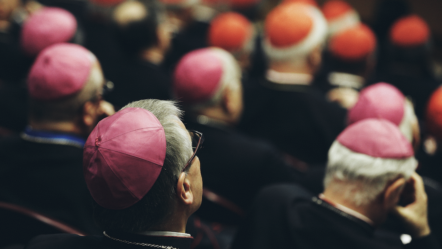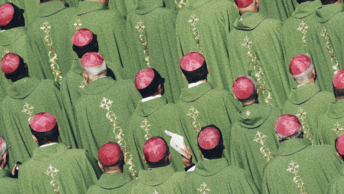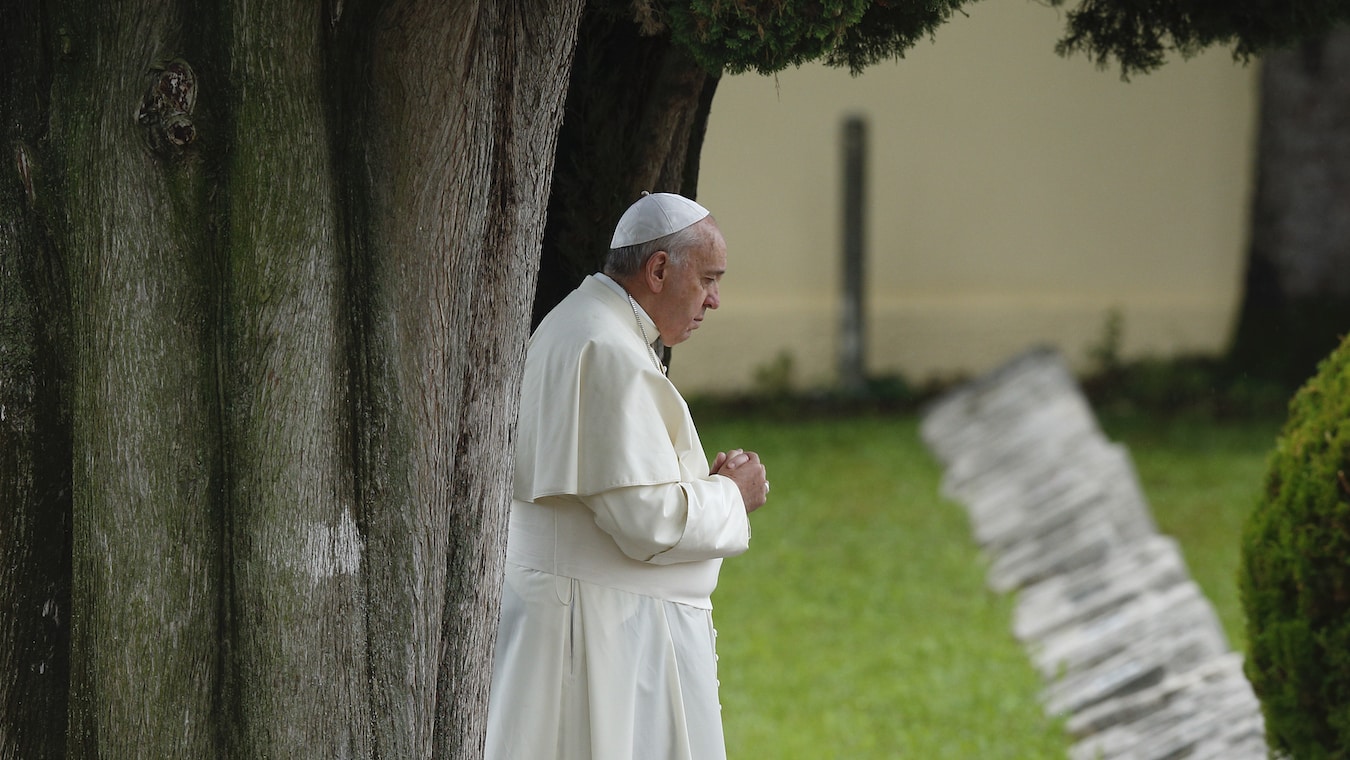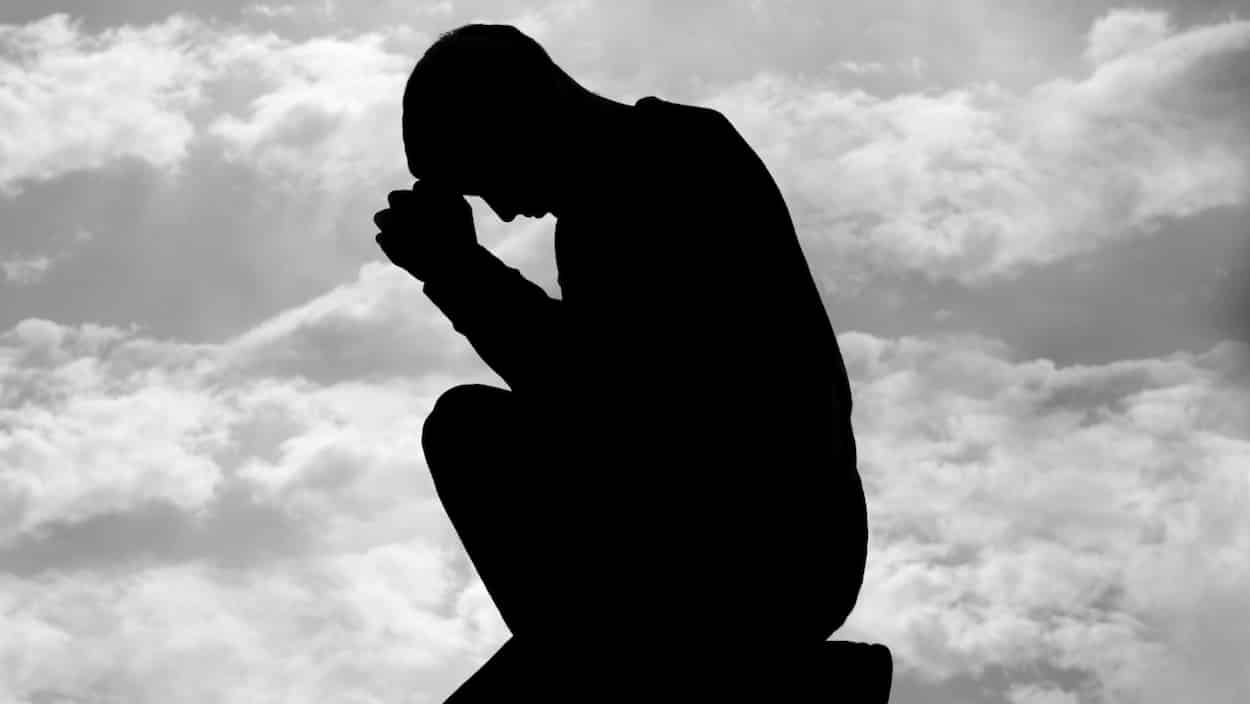“The good shepherd lays down his life for his sheep. The hired hand, who is not the shepherd and does not own the sheep, sees the wolf coming and leaves the sheep and runs away–and the wolf snatches them and scatters them. The hired hand runs away because a hired hand does not care for the sheep.” (John 10) Jesus used the parable to explain that He is the Good Shepherd. The Church has used it to signify the role of the bishops in guiding the “faithful” and protecting them from the “wiles of Satan” and avoiding sin.
At this moment in history, the Catholic faithful look to their shepherds, the bishops (including Pope Francis) for understanding and discernment about the terrible conflict in Israel and Gaza.
This essay will consider how well our shepherds are meeting that responsibility.
Pope Francis made this statement: “I pray for those families who have seen a day of [religious] celebration turned into a day of mourning and ask for the immediate release of the hostages” . . . and made clear that “it is the right of those who are attacked to defend themselves.” But he also spoke of his concern about the . . . “total siege facing the Palestinians in Gaza, where there have also been many innocent victims.” He went on to say that “terrorism and extremism do not help to reach a solution to the conflict between Israelis and Palestinians, but fuel hatred, violence, and revenge, causing suffering to both sides” . . . He concluded by saying, “The Middle East does not need war but peace, a peace built on justice, dialogue, and the courage of fraternity.”
Francis’ statement was fair in acknowledging that the conflict began with the inhumane attack by Hamas, and that Israel therefore had the right to defend itself. It was also helpful in its warning of the toll of conflict and the need for a just and humane outcome. However Francis did not make clear how the obstacles to that outcome can be overcome. .”
Bishop David Malloy, the chairman of the U.S. Conference of Catholic Bishops (USCCB) published two responses. The first was disappointingly vague. It spoke of a “widespread outbreak of violence,” “attacks and weaponry,” “terrorism and war,” and called for a “cessation of violence,” “respect for civilian populations” and the “release of hostages.” But he did not provide the specific information needed for his readers’ to understand and evaluate the situation.
The second USCCB response was somewhat less disappointing. It opened by stating that Hamas “initiated this war [and] must be condemned,” then urged that innocent sufferers be treated humanely, “fraternity” be restored, and a “lasting solution” be achieved. All in all, however, it was too general to be penetrating or helpful. Except for the brief reference to Hamas, the overall impression it gave was that there were no villains and no victims and no underlying cause. Strangely, despite the fact that USCCB is based in America, there was no mention of the anti-Semitism that was EXPLODING in America in response to the Mideast conflict.
Cardinal Pierbattista Pizzaballa, Latin Patriarch of Jerusalem, wrote a 1500-word letter to his diocese that began by referring obliquely to the conflict without many details. (To be fair, none may have been needed for that audience.) He spoke movingly of the “bewilderment” at the “images of horrors, which have reawakened ancient traumas,” and continued in that vein. He then proceeded to devote 85 words to the condemnation of the attack on Israel without mentioning Hamas, followed by 329 words on the violence done to Gaza, which included these words, “I pray for us all, and in particular for the small community of Gaza, which is suffering most of all.” There was no comparable reference to Israelis. [Note: the full version of the letter is no longer available on the Cardinal’s website. The link here is to the Vatican’s abbreviated version.]
Like many of her counterparts in the Catholic Church, Elizabeth A. Eaton Presiding Bishop of the Evangelical Lutheran Church in America, offered her assessment of the Mideast crisis. She began with a balanced statement that denounced both “the egregious acts of Hamas and the indiscriminate retaliation of Israel against the Palestinian people.” But the balance of her statement made a harsher assessment of the Israelis. She spoke of a “growing humanitarian crisis in Gaza as Israel blocks food, water, fuel and medical supplies and as airstrikes continue to cause unbearable civilian casualties ahead of a just-announced ground assault,” and then said, “the power exerted against all Palestinian people — through the occupation, the expansion of settlements and the escalating violence — must be called out as a root cause of what we are witnessing.”
All these bishops seem not only to agree with Pope Francis’ view that “the Middle East does not need war but peace, a peace built on justice, dialogue, and the courage of fraternity,” but also to believe that such a peace can be ended by a cease-fire, followed by a calm, mutually respectful discussion between Israel and Hamas. That belief is demonstrably false. Many Muslims in virtually every Mideast country believe that Israelis have no right to live in their country and should be forcibly evicted or, as the slogan puts it, “thrown into the sea.” More extreme groups, notably Hamas and Hezbollah, seek to destroy the state of Israel and kill as many Jews as they can. This is not a new goal, as their leaders have made clear for decades in statements like these: “The Jews are the most despicable and contemptible nation to crawl upon the face of the Earth, because they have displayed hostility to Allah.” “This is the time for the third uprising… Resistance will continue through suicide missions.” “Hamas will continue the resistance until the last drop of blood.”
The Hamas terrorists were carrying out this commitment in the unprovoked attack that started the present war by cutting babies out of wombs and beheading them in front of their mothers, raping women and children, and butchering entire families. The terrorists then gathered in countless miles of tunnels they built in Gaza under the homes of Palestinians, many of whom want only to live in peace and safety. Hamas is perfectly willing to have these people die and become propaganda tools, even while carrying out terrorism in their name. Meanwhile, Israel has urged Palestinians to leave the area for safety before the attacks begin.
The contrast between Hamas and Israel is as clear as the difference between humanitarianism and barbarism. It is therefore absurd to expect the two sides to sit down amicably and construct a “peace built on justice, dialogue, and the courage of fraternity.” That has been tried over and over again, only to fail for the obvious reason that one side seeks only the annihilation of the other.
This essay began by recalling the parable of the Good Shepherd. Let’s return to it and consider what it suggests about the quality of our religious shepherds’ guidance in the Mid-East catastrophe.
Suppose our metaphorical shepherd followed the idea the prelates seem to be proposing for the Mideast, scheduled a meeting between the sheep and the wolves, and said, “Come on fellows, there’s no need for the mutual animosity to continue. From this moment on, I want you to respect each other and live in harmony.” Suppose too that the shepherd then went to his shelter for the night. What would he have found waiting for him when he returned the next morning? A mixed group of joy-filled animals? Or a pack of bloated wolves surrounded by bloody fleece? Obviously the second. It is the nature of wolves to eat other animals, and a lecture from a well-intentioned shepherd, particularly at mealtime, cannot change that nature.
People are very different from animals, of course; people can respond favorably to rational and moral appeals under the right circumstances. The question is whether being taught from childhood that Jews are disgusting bugs and obliterating them will earn one a blessing from the Creator, and then devoting one’s life to that mission, qualify as the “right circumstances.” And the answer is decidedly no, because nurture in humans is almost as powerful as nature in wolves. A simple way to gain this insight is by applying common sense to everyday experience. A fuller way is by studying history. The most meaningful way is by opening our minds to the wisdom of the Holy Spirit.
Judging from quoted statements earlier in this essay, the bishops’ view of the Mideast conflict is at best insufficient and at worst misleading. This is especially troubling at a time when the safety of that region and perhaps of the world depends on sound guidance from religious as well as secular leaders.
Copyright © 2023 by Vincent Ryan Ruggiero. All rights reserved.








